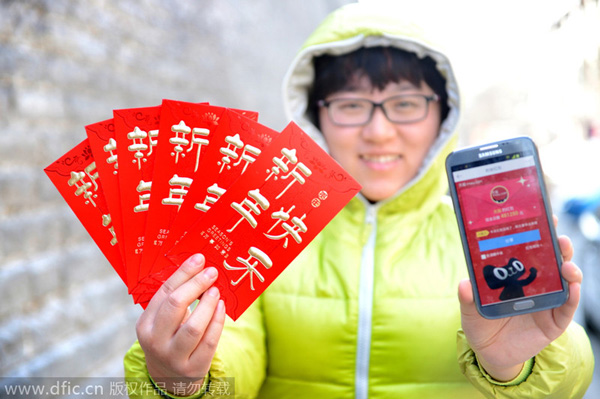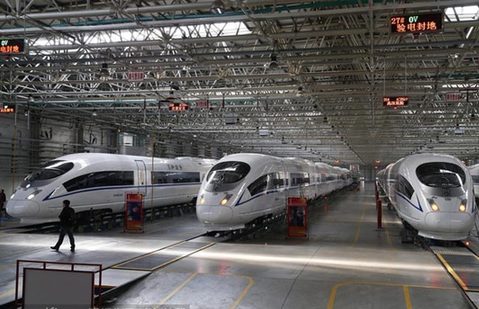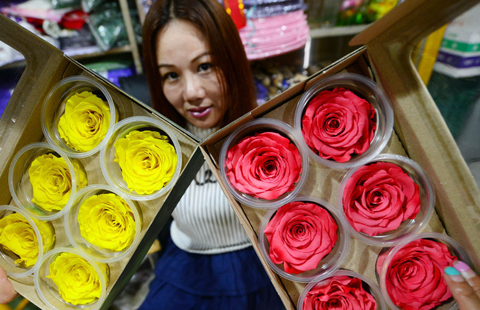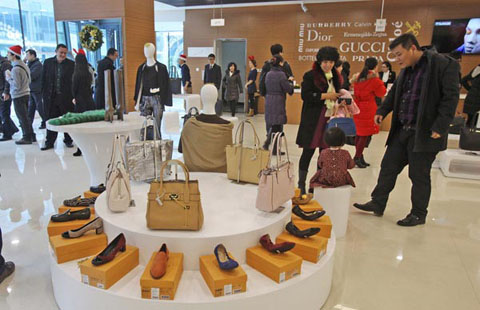Red envelope fight flares among Internet giants
By Meng Jing and Li Xiang (China Daily) Updated: 2015-02-13 07:16
 |
|
A girl holds the traditional red envelopes (left) and the electronic red envelopes (right) in Xi'an, Northwest China's Shaanxi province, Feb 2, 2015. [Photo/IC] |
Mobile services blocked amid fierce competition by rivals to prevent users being poached
Red envelopes-traditional monetary gifts sent at Spring Festival that are said to bring good luck-have gone viral amid hot competition to capture mobile payment users.
In subways, offices or restaurants, smartphone users are opening electronic red envelopes on social media platforms such as WeChat and Weibo or with e-payment tools such as Alipay Wallet.
"How much money have you got online?" has even become a new form of greeting in China.
More than 7 billion yuan ($1.12 billion) is expected to be spent by Internet firms during Spring Festival to lure new mobile payment users via cash-filled or coupon-filled red envelopes.
But brutal competition behind the red envelopes phenomenon has become a hot topic and has triggered mixed feelings.
WeChat, which is owned by Tencent and is China's most widely used mobile messaging app, fired the first salvo early this month by blocking red envelopes sent from Alipay Wallet, the mobile payment service owned by e-commerce giant Alibaba.
The move came within 12 hours of Alipay Wallet updating its service to allow users to share red envelopes on multiple channels, including Tencent's mobile chatting apps WeChat and QQ.
Tencent did not give any reason for blocking the Wallet service with its WeChat Web page, simply citing "security concerns" for rejecting requests to share Alipay's red envelopes on its platform.
The following day, WeChat blocked the music site Xiami, which is owned by Alibaba.
Wang Weidong, an analyst at iResearch Consulting Group, said given that mobile payments are a booming market in China, blocking competitors' services makes sense in order to prevent users from being poached.
"Red envelopes are a must-have feature to attract new mobile payment users during Spring Festival. This market is booming. Even if Alipay is the No 1 player, there is still a chance for other players to catch up or even reshape the market," Wang said.
- Red envelope shortage sparks online backlash
- 'Battlefield' for mobile payments is shifting overseas
- Chinese people likely to give fatter red envelopes this year, says survey
- Technology giants in flap over gift envelopes
- Top 10 favorite gift brands of rich Chinese women
- Top 10 favorite gift brands of rich Chinese men
- China to share development with countries along maritime Silk Road
- Shanghai FTZ relaxes overseas financing
- Yuan bond markets to grow in 2015: Moody's
- Standardization key for rehabilitating 'Made in China'
- Chinese use more credit cards in 2014
- Authority dismisses China telecoms merger rumors
- China's installed wind power capacity hit record high in 2014
- Internet regulator tightens regulations on dating websites

















